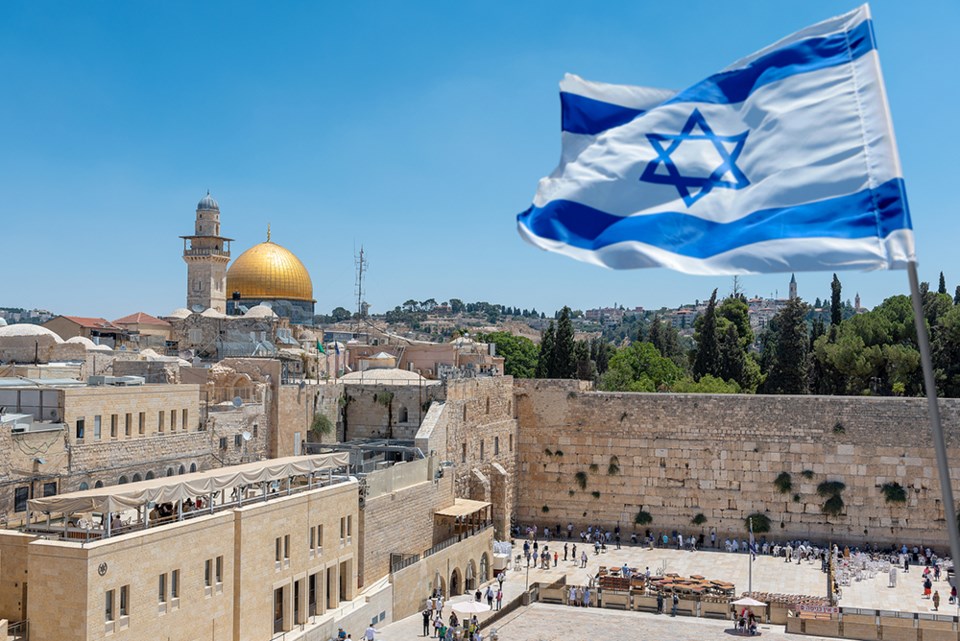During the summer of 1994, a U.S. government official declared what was happening in Rwanda were acts of genocide.
A reporter rightly asked how many acts of genocide make a genocide.
The distinction matters because Canada, the U.S. and all members of the United Nations are obligated to intervene – militarily if necessary – to stop a genocide in progress (which Rwanda clearly was).
The danger lies not just in underreacting (by the time France led an international force into Rwanda in the fall of 1994, more than half a million Tutsis had been massacred in just over three months in a country of seven million people half the size of the Prince George school district) but also overreacting (like, for example, the idea of Canada joining a UN contingent to invade Israel to stop it from bombing Gaza).
Regardless of how pro-Israeli or pro-Palestinian they are, most people don’t want what’s happening in Gaza and Israel to grow into a Middle East war or a global conflict. The First World War started with one death – a political assassination. Students of history know why Israel and Gaza (and Russia’s invasion of Ukraine) should matter to everyone in the world, even in Prince George. It is these kinds of events that have led to past wars where Canadian soldiers died.
That’s why it is wrong – at least for now – to call what Israel is doing in Gaza a genocide. Using that word at this moment in this situation is dangerous, irresponsible and the fuel for further conflict, not only there but across Canada and even here in Prince George with threats towards Jewish and Muslim residents.
Historians will come to agree or reject whether including the word genocide to describe this current war between Israel and Hamas is correct.
As cruel, immoral and illegal under international law as targeting civilian populations during wartime is, there are clear historical examples to show that doing so doesn’t necessarily constitute genocide. Historians already agree that Germany bombing London civilians, the Allies bombing German cities or even the U.S. dropping nuclear bombs on Hiroshima and Nagasaki were not genocide or even acts of genocide.
At present, the largest ethnic minority in Israel is Palestinian Arabs. So if Israel’s response to the horrific Hamas attacks of Oct. 7 is genocidal, how does that square with Israel not making a far more concerted effort to eliminate the Arabs in its own midst, literally (mass murder and forced sterilization) and/or culturally (banning Arabic expressions of language, religion and tradition, as well as kidnapping Palestinian children, putting them in residential schools for indoctrination and adopting the rest out to Jewish families).
Furthermore, Hamas has openly and repeatedly declared its genocidal desire to wipe Israel and its Jewish residents off the face of the Earth. When an Israeli cabinet minister stated nuclear weapons were “one of the possibilities” in the war with Gaza, he was immediately suspended.
Nevertheless, it is still important to hear the voices of those who believe that Israel has already crossed the genocidal line in its response to Oct. 7. It is critical that we make a distinction between the horrible people who want Israel and Jews destroyed and the concerned citizens who want Israel and Jews to live in a peaceful co-existence with their Arab neighbours and vice versa.
To be sensitive (and overly sensitive) to genocide is a valuable social tool because that’s what we must do is order to get to “never again.” In the current case with Gaza, it prompts a discussion about whether Israel’s military response to the Oct. 7 attack is proportionate, just and a step towards a lasting peace.
So long as Hamas continues to fire rockets towards Israeli residents and refuses to immediately release hundreds of civilian hostages, does Israel have the legal and moral authority to bomb and invade a space not much bigger than Prince George’s city limits, where more than two million innocent people live, a significant proportion of them children, in order to destroy Hamas, the group solely responsible for the events of Oct. 7?
That’s the only question that really matters right now.



